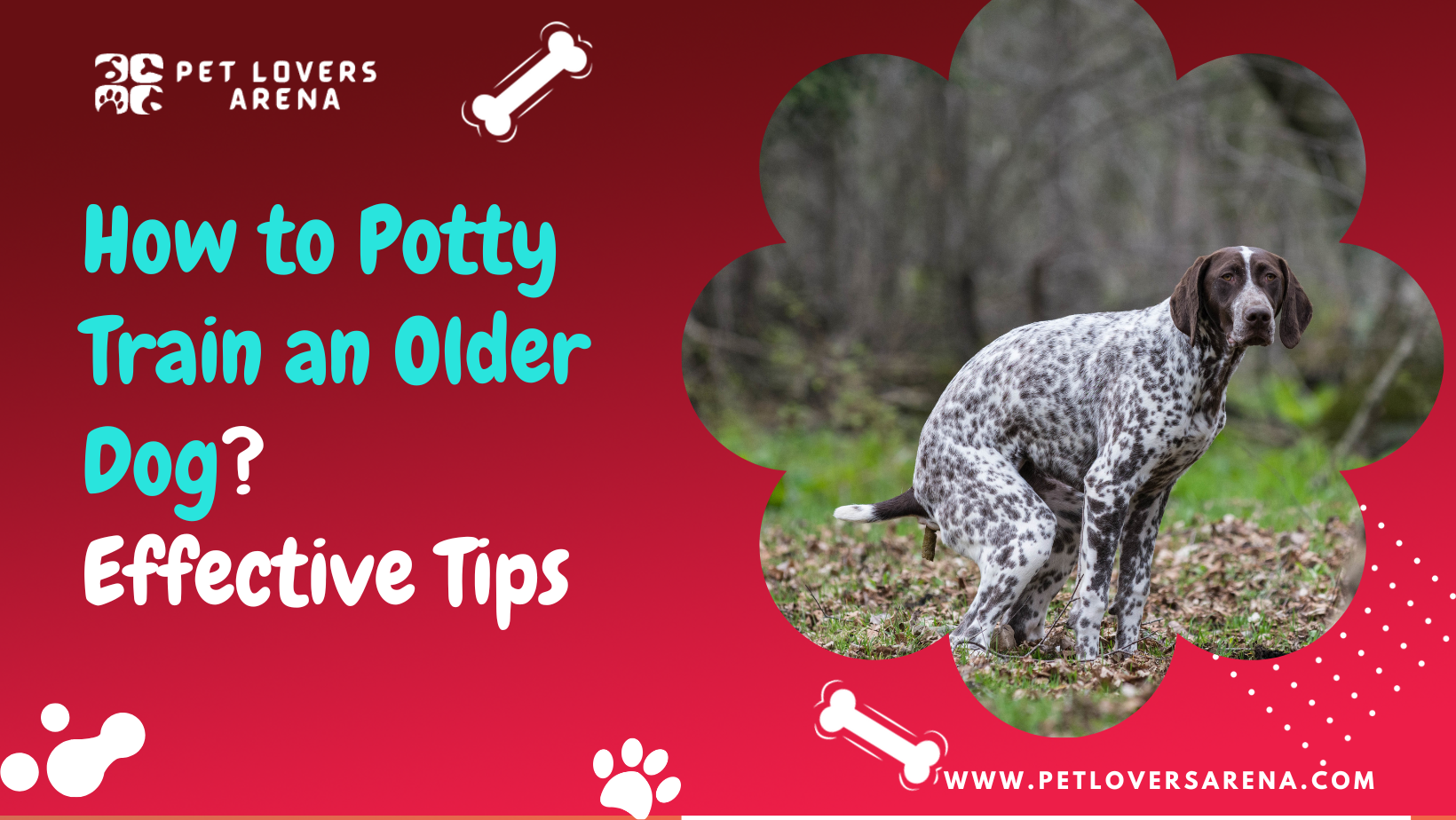Potty training an older dog is a daunting task. Still, it is definitely possible with the right approach and patience. Whether you have adopted an adult dog or your senior dog has started having accidents indoors, training them to go potty outside is important. Not only will this prevent messes in your home, but it will also improve your dog’s overall health and well-being.
You may be wondering why you should bother potty training an older dog. After all, they have been pottying their whole life. While that may be true, older dogs may develop health conditions that make it difficult to hold their bladder or bowels.
Key Takeaways
- Potty training an older dog is possible with the right approach and patience.
- Potty training improves your dog’s health and well-being and strengthens your bond with your furry companion.
- Older dogs may develop health conditions that make it difficult to hold their bladder or bowels, making potty training even more important.
Why Should You Potty Train An Older Dog?
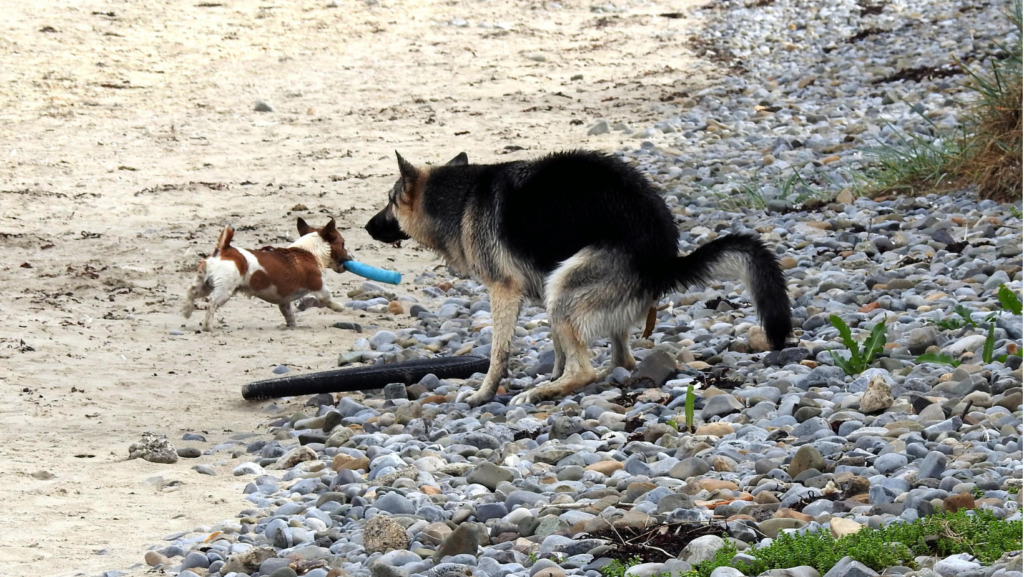
When you adopt an older dog, it becomes a big responsibility for you as a pet owner to look after it carefully. But here comes the big deal – training them to be gentle and adapt to the environment of the house they are living in.
Well, as it sounds, it isn’t that difficult. All you need to have is a lot of patience, especially when you are potty training your old companion. In this section of the article, you will learn about why you should train them, so keep reading.
1. To Maintain Hygiene and Comfort
A house-trained dog is a clean and comfortable dog. When your older dog is potty trained, they will no longer soil your floors, carpets, or furniture. This will keep your home clean and prevent odors and stains. Additionally, a house-trained dog is less likely to develop skin irritations and infections caused by prolonged exposure to urine and feces.
2. To Strengthen the Bond with Your Canine Companion
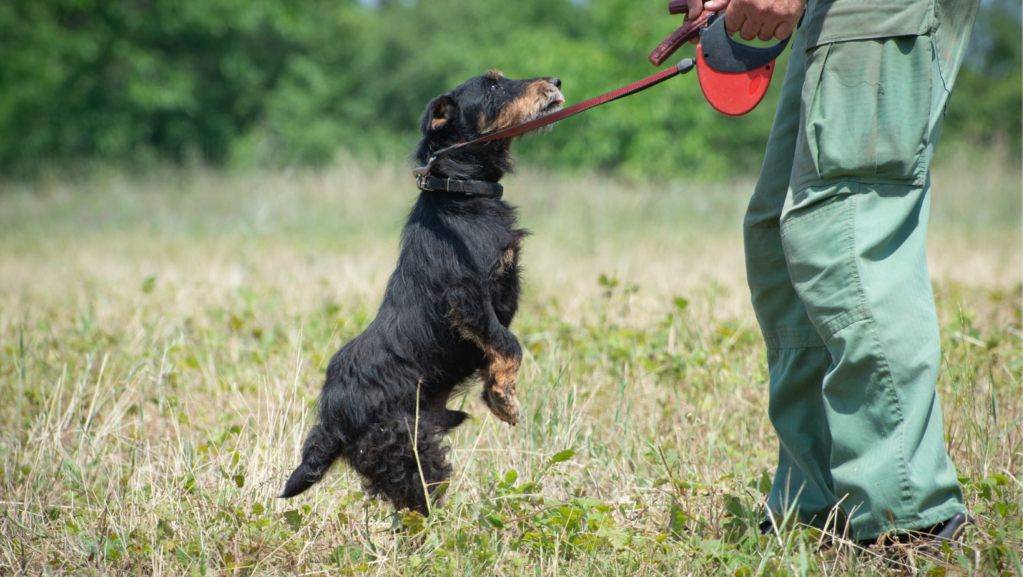
Potty training is not just teaching your dog to relieve themselves outside but also an excellent opportunity to bond with your older dog. Positive reinforcement techniques such as praise and treats can help your dog associate good behavior with rewards. This can strengthen your relationship with your furry friend and make them feel loved and appreciated.
3. To Promote Socialization
A potty-trained dog is a well-socialized dog. When your older dog is comfortable relieving themselves outside, they are more likely to enjoy walks and outdoor activities. This can help them stay active and healthy, both physically and mentally. Additionally, a well-socialized dog is less likely to exhibit aggressive or anxious behavior around other dogs and people.
Can An Older Dog Be Potty Trained?
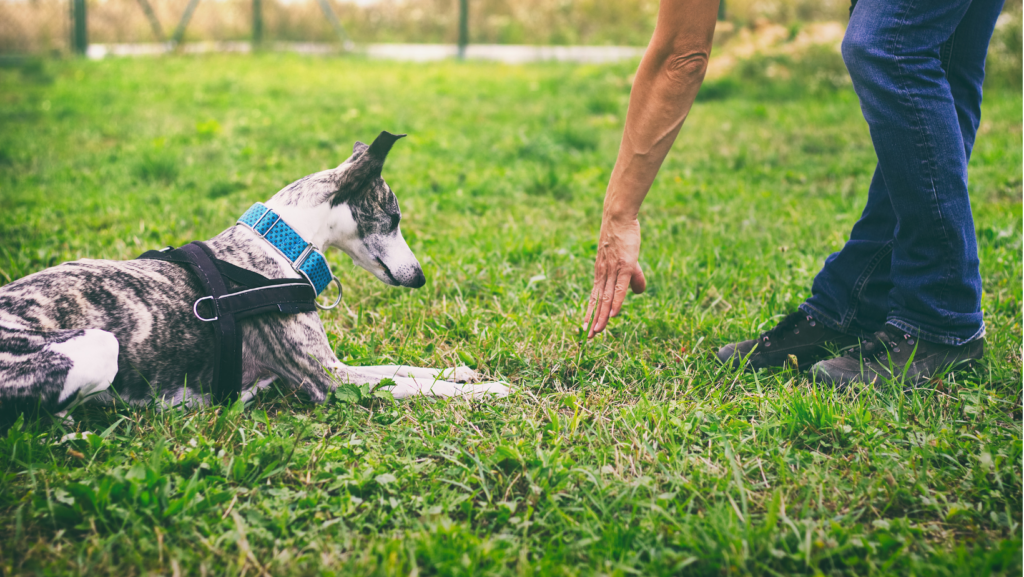
YES!! If you have an older dog that still needs to be housebroken, you may be wondering if it is possible to potty train them. The good news is that it is possible to potty train an older dog. However, it may take more time and patience than potty training a puppy.
You can begin training your older dog once you have acknowledged if there are any medical issues. Being consistent is the key when potty training an older dog. Stick to a regular schedule for feeding and potty breaks, and be patient with your dogs as they learn. Your older dog can become crate-trained and housebroken with time and effort.
Effective Tips on Potty Training an Older or a Senior Dog
Potty training an older or senior dog may seem like a heavy-duty, but with the right approach and patience, it can be done successfully. Here are some effective tips to help you potty train your older or senior dog.
1. Addressing Health-Related Potty Training Issues
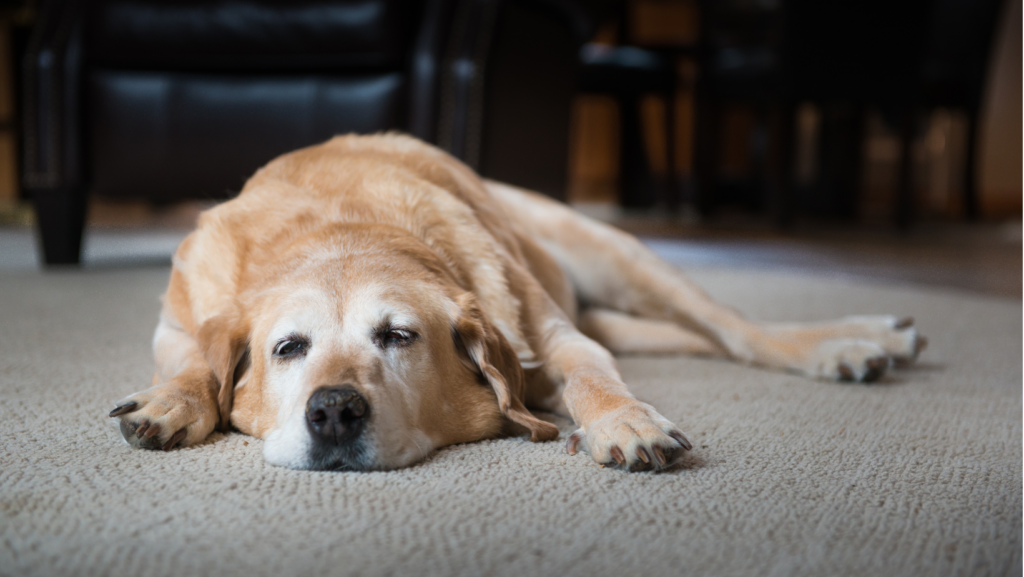
Before you start potty training your older or senior dog, it’s important to address any health-related issues that may be causing them to have accidents. Take your dog to the veterinarian for a complete examination so that you can find out if there are any serious medical diagnoses required in cases like incontinence, mobility issues, or canine cognitive dysfunction (dementia). They can provide guidance and support in helping your older or senior dog learn where and when to go potty.
2. Preparing for the Potty Training
Preparing for potty training involves creating a comfortable and safe environment for your older or senior dog. You can use a crate or a designated area with a bed, water, and toys to help your dog feel secure. Also, invest in high-quality cleaning products to clean up any accidents that may occur during the training process.
3. Establishing a Potty Training Routine
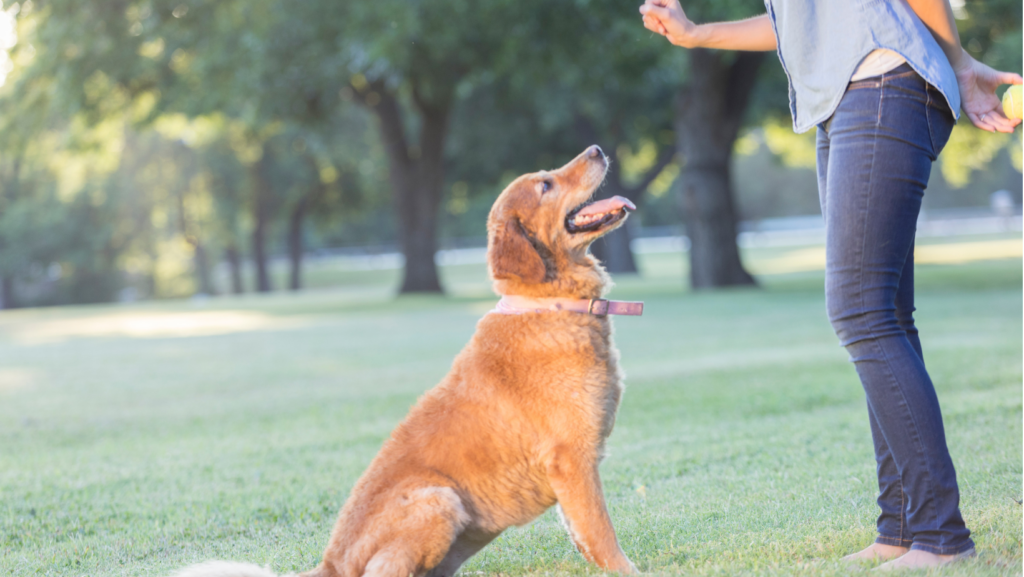
Establishing a potty training routine is crucial in helping your older or senior dog learn where and when to go potty. Take your dog out for potty breaks after meals, naps, and playtime, and use a designated area in your yard or indoors. Be consistent with your routine and simultaneously praise your dog when they go potty in the proper area.
4. Recognizing and Responding to Your Dog’s Signals
Recognizing and responding to your dog’s signals is important in helping them learn to communicate their need to go potty. Look out for signs such as sniffing, circling, or whining, and take your dog to the potty area instantly.
5. Employing Positive Reinforcement Techniques
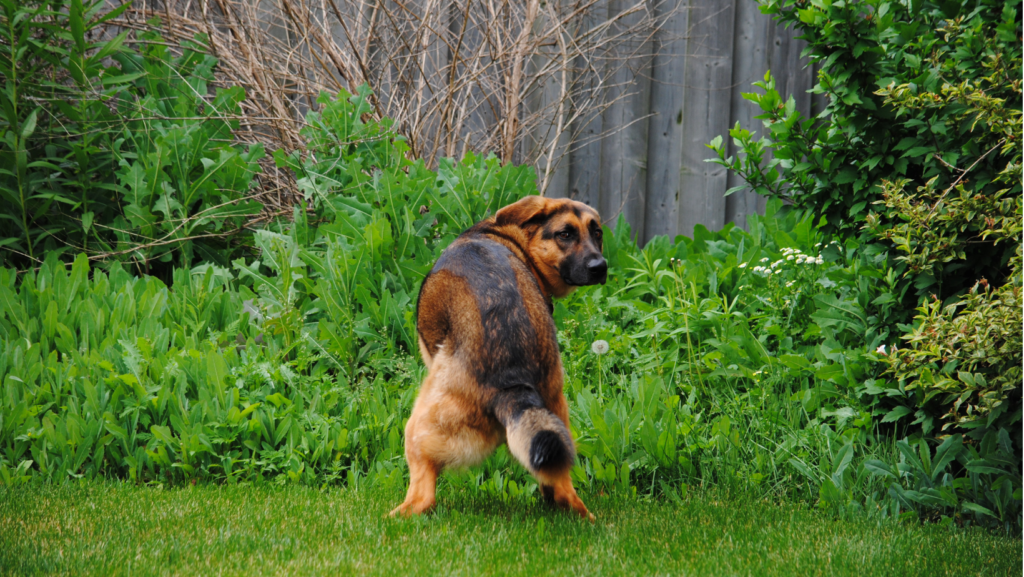
Employing positive reinforcement techniques such as praise, treats, and belly rubs can help motivate your older or senior dog during the potty training process. Reward your dog and avoid punishment for accidents.
6. Dealing with Accidents
Dealing with accidents is an inevitable part of potty training an older or senior dog. When accidents happen, clean them up with high-quality cleaning products and avoid scolding or punishing your dog. Instead, refocus on the training process and continue to reinforce positive behavior.
7. The Role of Exercise and Enrichment
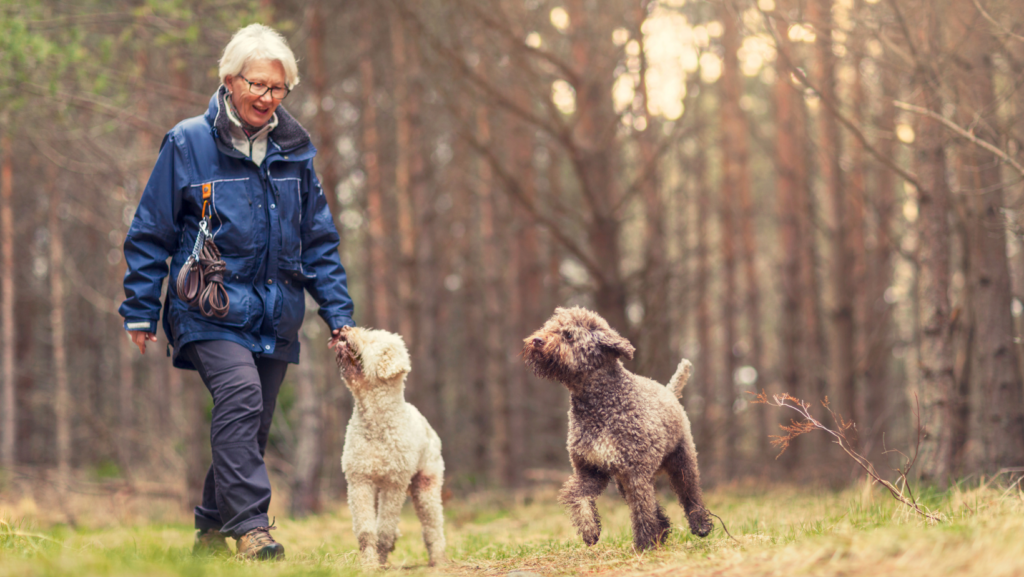
The role of exercise and enrichment are important in helping your older or senior dog stay active and engaged, which can also help with potty training. Regular exercise and playtime can help your dog maintain their physical and mental health, which can also improve their ability to learn and retain new behaviors.
8. Transitioning from Indoor to Outdoor Potty Training
Transitioning from indoor to outdoor potty training can be a gradual process, especially for older or senior dogs. Start by gradually moving the designated potty area closer to the door and eventually outside.
FAQ’s
You can train an older dog to use an indoor potty by using a designated spot in your home and using positive reinforcement. Start by confining your dog to a small area with the indoor potty, and gradually expand their space as they learn to use it. Reward your dog with treats and praise when they use the indoor potty.
If traditional potty training methods don’t work, there are some last-resort options to consider. One option is using a belly band or dog diaper to prevent accidents indoors. Another option is crate training, which involves confining your dog to a crate when you’re not home or unable to supervise them.
Conclusion
Remember that every dog is different and may require a unique approach to training. Start by setting up a routine and sticking to it as much as possible. Consider using a crate to aid in the training process and provide a safe space for your dog.
Clean them up if accidents happen to remove any lingering smells that may attract your dog back to the same spot. Be sure never to punish your dog for accidents, which can lead to fear and anxiety. Remember to be patient and consistent, and celebrate small victories.
Meet Fabian Wright, our guide into the animal realm at PetLoversArena.com. Having served as an Animal Care Specialist for the Ruwenzori Team at the Kansas City Zoo, he prioritizes conserving exotic species by replicating their habitats. Fabian aspires to share captivating stories of creatures, big and small, through PetLoversArena.com.

